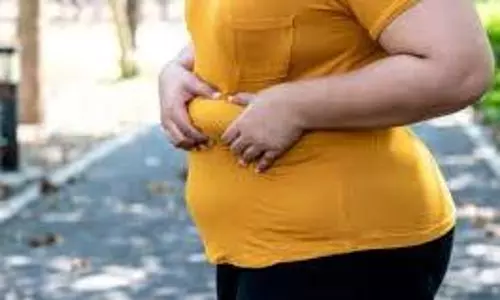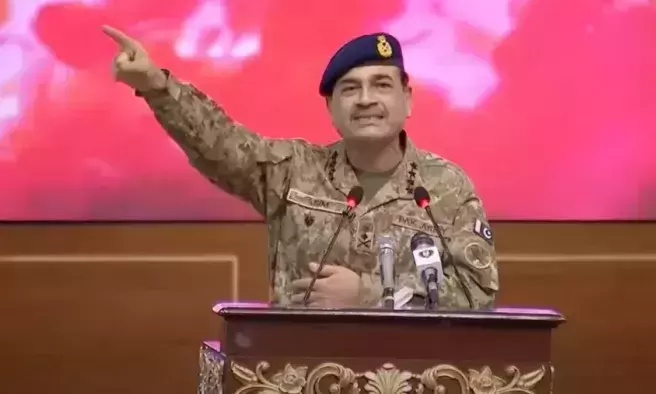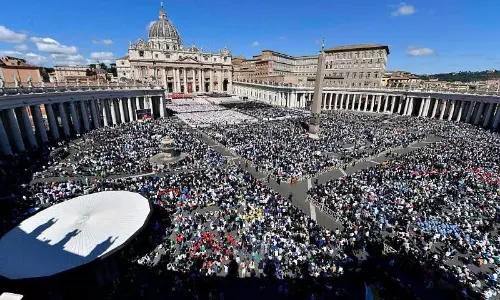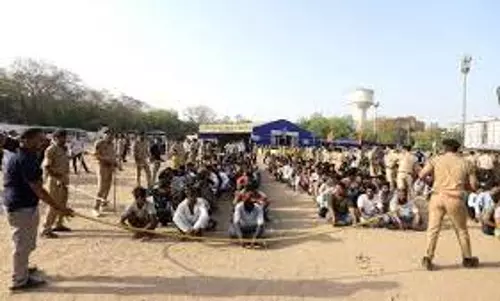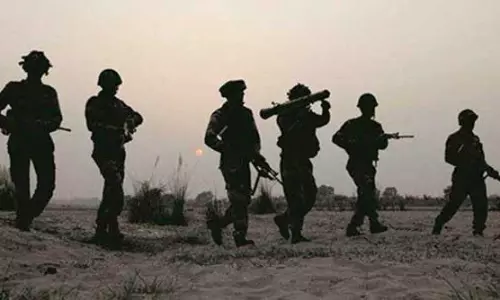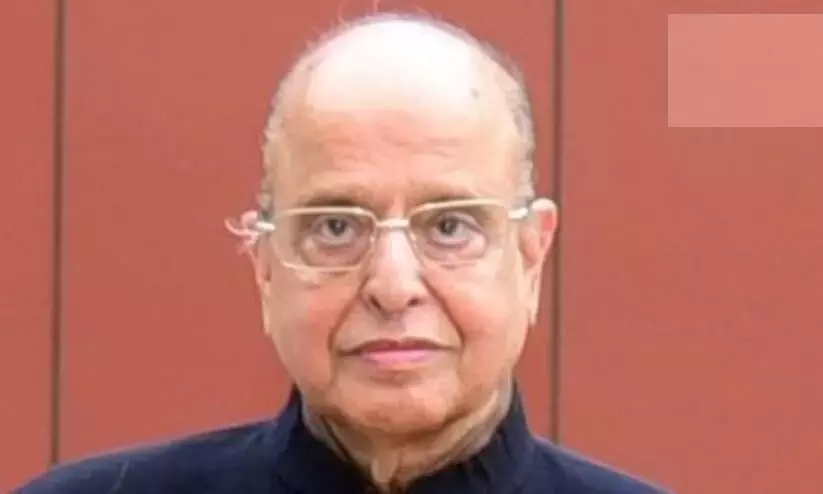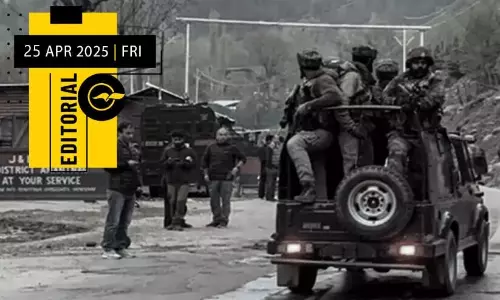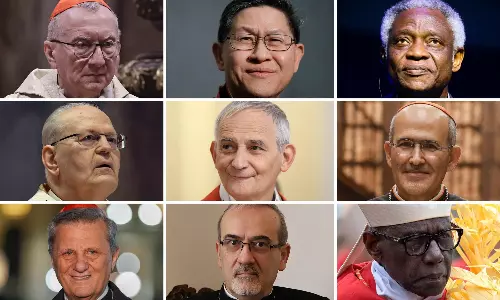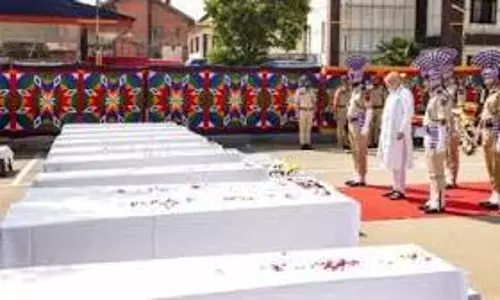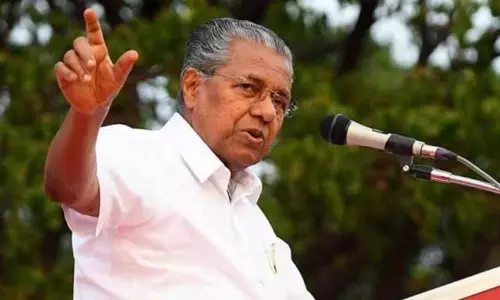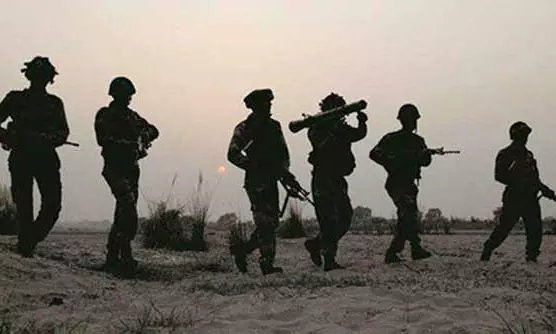
Pahalgam attack bursts normalcy bubble claim in J&K
text_fieldsThe deadliest attack on civilians in Kashmir in decades has stabbed the "all is well" narrative in Kashmir and also brought two arch-rivals, India and Pakistan, back to the brink of war.
All this started on Tuesday afternoon in the picturesque Baisaran meadow near the famous resort of Pahalgam.
Twenty-six people — 25 tourists and one local — were killed and several others injured when militants disguised in army fatigues opened fire with automatic rifles. The attackers, witnesses said, asked the victims — who were all male — about their religion before shooting them. The attack shattered years of perceived calm in the Valley.
The massacre, for which the Lashkar-e-Toiba-affiliated “The Resistance Front” claimed responsibility, struck a fatal blow to the Narendra Modi government's post-abrogation "normalcy claim" after Article 370 was revoked, and to the region’s booming tourism industry — an industry that had seen record footfalls of over three million in 2024.
A Valley in mourning
The attack not only stunned Kashmir’s tourism sector but also sparked an unprecedented reaction from the general public. On Wednesday, people across the Valley observed a rare shutdown, protesting in grief and outrage against the killings.
Placards reading “Not in my name” and “Terrorism is unacceptable” were seen at protest sites, including Srinagar’s historic Ghanta Ghar — a symbolic location for both separatist protests and tourists' selfies.
Leading newspapers printed their front pages in black as a mark of mourning. Hurriyat leader Mirwaiz Umar Farooq, trade bodies, and even separatist clerics supported the shutdown. Kashmir’s two mainstream parties — the National Conference and the People's Democratic Party — held protests against the killings. An all-party meeting was called by J&K Chief Minister Omar Abdullah, which unanimously adopted a resolution condemning the incident in strong words. In a rare gesture, devotees at Kashmir’s historic Jamia Masjid in Srinagar observed a one-minute silence in solidarity with the victims of the terror attack in Pahalgam.
Shockwaves in Delhi and beyond
The attack comes as a grim reminder of the fragility behind the government’s post-2019 "normalcy" narrative. The gruesome scenes evoked memories of the 2019 Pulwama attack, when a local suicide bomber, Adil Dar of Jaish-e-Mohammad, rammed his explosive-laden car into a CRPF bus at Lethpora, Pulwama, leaving 40 personnel dead. That attack was followed by the Balakot air strikes. A day later, Pakistan retaliated, triggering a brief dogfight. The Pulwama attack had brought India and Pakistan to the brink of war.
When the attack on tourists took place, Prime Minister Modi was on an official visit to Saudi Arabia. He cut short his visit and returned home Tuesday night. Within hours of the attack, Home Minister Amit Shah flew to Srinagar and visited the carnage site the next day. A massive manhunt is underway, with drones, helicopters, and para-commandos combing the surrounding forests. Police claim that four Lashkar militants — two of them Pakistanis — were involved in the attack. Top world leaders extended their condolences to Prime Minister Modi, strongly condemning the heinous act of terrorism.
Security breach
Security experts have criticised the apparent complacency of the security establishment in Pahalgam. Locals said there was minimal deployment at the time of the attack, even though Baisaran is frequented by senior officials from various government departments. The attackers reportedly took advantage of the dense forest cover around Baisaran, which connects to remote mountain routes stretching towards Kishtwar and Baltal.
Fractured peace
While police and security forces — under the direct control of Union Home Minister Amit Shah and the J&K Lt Governor — continue to pursue a hardline, iron-fist policy against militants and their alleged sympathisers, the cycle of violence in Jammu and Kashmir shows little sign of abating. The absence of meaningful political outreach and the limited powers available to elected representatives have only deepened the sense of alienation among the people.
Adding to their woes, renewed tensions between India and Pakistan — who have long been at odds over Kashmir — have sparked fresh anxieties among residents. With diplomatic ties strained and cross-border rhetoric intensifying, many fear a resurgence of instability, further dimming hopes for peace or normalcy in the region.





